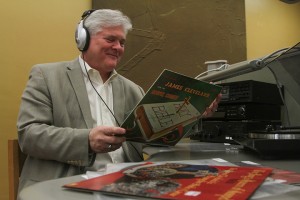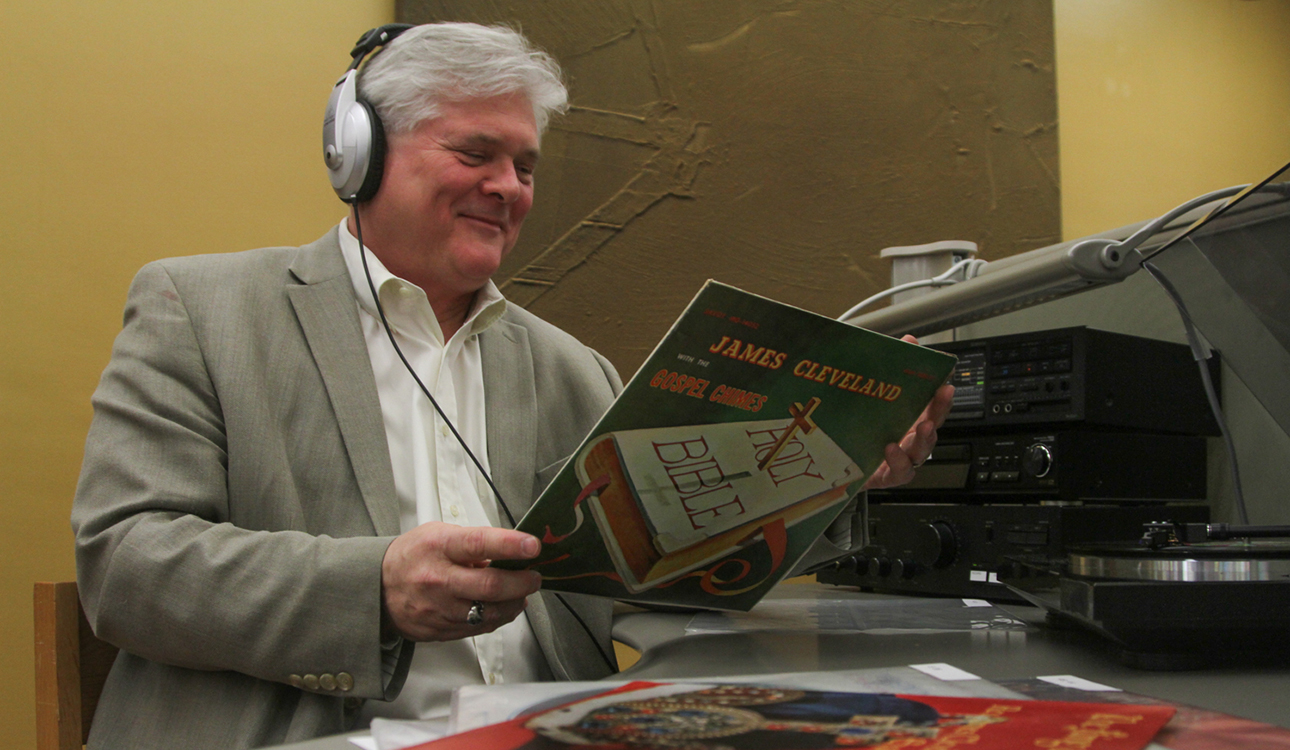
Skye Duncan| Lariat Photo Editor
By Jonathon S. Platt
News Editor
Something is missing from modern historical movies about the civil rights movements of the ’60s.
Robert Darden, associate professor of journalism, public relations and new media, believes this so strongly that he has spent the last decade researching and writing about the topic. He has written a history of African-American spirituals and recently published “Nothing But Love In God’s Water,” which is the first part of a two volume series over the influence of sacred black gospel music on movements throughout history.
When Darden saw “Selma,” a recent Oscar-nominated movie directed by Ava DuVernay, he said while the movie was a great piece of film work, it did not incorporate the vital aspect of song during the famous march.
What did you think about the Oscar-nominated movie “Selma”?
It proved my thesis. As wonderful as it was, and as wonderful as the acting was, and the directing and the inherent drama of it is — and as somebody who taught screenwriting for 25 years — I understand the limitations and the constraints placed on a filmmaker.
It proves my point that mainstream historians and mainstream filmmakers have tended not to value the music to the degree to which I think it deserves. And I hope my books go some tiny way towards addressing that issue and that the feature writers and filmmakers will pay more attention and see the music for what it really was: essential, rather than superfluous.
What did you think about Dernay’s incorporation of modern songs?
She ended the film with John Legend and Common. While I certainly don’t doubt either one of their sincerity and I understand she’s trying to touch a younger audience, there are dozens of spirituals sung by modern artists that would have had a devastating impact.
Up tempo, slow tempo, minor key, major key, it doesn’t matter. There is one there that could have been just as arresting and just as memorable to close the show.
What about the filmmaker’s choice to use a Bob Dylan song?
Again, this is her vision, not mine. I wouldn’t have used a Bob Dylan song. I love Bob Dylan, but if you’re going to spotlight music, spotlight an African-American song by an African-American that was sung there. Dylan’s songs were not sung on the bridge. There are too many words. They need a guitar.
The great freedom songs can be sung A capella with clapping, and were.
Do you think DuVernay’s younger age (of 42) contributed to the lack of sacred singing being presented?
She is a younger woman – everybody is younger to me – and an older African-American director may have treated it differently. But, then again, he may not have been able to get it done. This was her vision, and I certainly respect her vision on it.
I would just have like to hear some of the music that transformed and later transcended Selma.
What songs should have been heard in the movie?
For the march in Selma, in particular, “Ain’t Gonna Let Nobody Turn Me ’Round.” I would liked to have heard – there was just a hint of it – “We Shall Overcome.” That’s a favorite of mine. “Joshua Fit The Battle of Jericho” was sung all the way through the march as a freedom song and “We Got A Rope That’s A Berlin Wall, A Berlin Wall.” And the other one, which has many names, would be “Freedom” or “Hold On” and it was called “Keep Your Eyes On The Prize.”
After seeing the film, Darden published a blog post called “The Missing Songs of ‘Selma.’” To read it, visit this story on baylorlariat.com.






